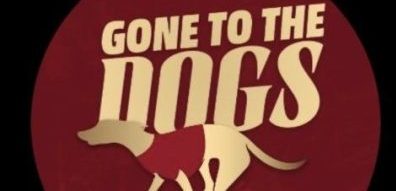1966 George Webster, a trainer at Rayleigh, loses his licence over an incident that occurred 16 years earlier. Webster had trained for four years at Rayleigh but needed an NGRC licence when the track switched from flapping to racing under rules. Although he was initially licenced, the former Royal Navy and merchant seaman was refused a licence when it was due for renewal. The original conviction was for larceny.
1997 Former stipendiary steward Dan McCormick laid into his former colleagues at the Racing Managers Conference at Oxford Stadium. The hugely experienced McCormick, now running Oxford was unhappy. Greyhound Star reports on the discussion which relates to Irish transfer of ownership fees: “. . .this is the £10 charged to change the ownership of an Irish bred greyhound with the Irish authorities during the changing of its registration with the NGRC. The Club will not sanction a transfer until the transfer is effected. ‘It is a stupid rule’ says Big Dan, ‘and I have been saying so for years. The vast majority of the dogs that come over are never going back to Ireland. Owners in this country have been throwing money at the ICC for years.’ A clearly flustered senior steward (Bille Cooke) replied ‘As I am sure you know Dan, we have been looking at this situation for some time. . .’ ‘I know you have’ replied McCormick, all guns blazing, ‘and there has been bugger all done about it. I wish I knew how much it was costing.’ ‘We know it is around £100,000 per year’ replied the senior steward.”
1928 We have previously mentioned the opening night at Wimbledon, but here is the story of ‘the failed opening.’ The original opening ceremony was planned for the Wednesday evening. A newspaper report stated: “The most elaborate preparations had been made for the track’s christening. On the Monday before the planned opening, newspapermen were entertained to lunch by the directors and afterwards afterwards watched actress Tallulah Bankhead, then at the height of her West End fame, break a bottle of champagne over the hare and christen it “Gracie”. Meanwhile, there remained much clearing up to be done before the track could be opened. The turnstiles had to be erected, tractors, tools and other builders’ equipment removed. The special shift of workers had been organised for the Tuesday night to do these chores, but throughout the afternoon torrential rain fell. It kept on falling throughout the night, and although the workmen carried on, their efforts were badly impeded. By Wednesday morning they were still hard at it, though the downpour had made a bog of the track and the ground outside. Finally, heavy rain began again and a hastily convened directors meeting. it was decided that the opening would have to be put back until the following Saturday. But how to let the anticipated crowd of 40,000 Londoners know at this late hour? The stadium’s press representative Fred Stowe answered that problem. Commandeering all available telephones, he and his assistants contacted the evening newspapers and press agencies, and also had all advertisement copy changed. Thousands of handbills were printed for distribution at railway stations, bus and tram stops. This prompt piece of organisation saved enthusiasts from a wasted journey and the work went ahead for Saturday’s opening. This was a grand affair with the band of the Welsh Guards parading the track with Gracie the hare leading them at a sedate 3mph.”
1966 Following protests from owners, Portsmouth decide to scrap the allocation of traps by the racing manager an return to an open draw for graded races.
1947 Perry Barr introduce a new ‘trackless’ hare called the McWhirter.
1958 The BBC feature a greyhound in their programme Educated Evans. The comedy starring Charlie Chester is about a greyhound called Fruit Bowl who was sold to Evans by two dodgy characters in a pub. The star was former Charlton grader Good Ann.
1968 The final of the Gold Collar over 570 yards at Catford, sees A David’s Shanes Rocket (Crazy Parachute-Shanes Judy, Jan 66) triumph after being beaten twice at odds on in heat and semi final. The 7-2 chance, trained privately by Paddy Milligan, takes the £1,500 final in 33.39 from local favourite Surprising Fella, who atones for his defeat by winning the event the following year. Third home is Greenville Boy, though a dog with exactly the same name will win a classic, the Scottish Derby some 11 years later.
1947 Thornton are advertising for 36 runners for the Pitmens Derby. Entry fees are £10 and the first prize is £250 – equivalent to £400 and £10,000 at today’s values.
1997 Flashy Sir – one of the greatest British sires of all time is put to sleep following a stroke, aged 12. Bought for a TV documentary, the small son of Sand Man went on to win the Laurels and Circuit. In the breeding paddocks, he was a phenomenon with progeny including Phantom Flash, Pearls Girl, Sir Grand, Westmead Havoc and Galleydown Boy. Although he stood at stud in Britain for most of his career, he reached no.8 on the sires table.
2001 Romford bookie Steve Allen, Tony Morris’ representative at Romford, announces that he is to cease trading at the track due to the track’s increased fixtures. They are now racing seven meetings per week.
1966 Coursing Derby winner Dillies Pigalle (Pigalle Wonder-Millies Dillie) produces one of the greatest 525 performances ever witnessed in Ireland when landing the McAlevey Gold Cup at Celtic Park by six lengths in 28.86.
1997 Shelbourne Park announce a change of date for the Irish Derby Final which will now be held on Saturday October 4. Despite having arrangements already in place to marry fiancée Jayne Letley on the opposite side of the Irish Sea at 3am the following day, trainer Tony Meek refuses to cancel his big night. Best man Laurence Blunt is confident: “A night at Shelbourne, a few clubs, fly home the next morning.” Mum Marlene Meek is panicking “I have been waiting to get rid of him for years. Nothing must go wrong!”
1956 A 21 acre site incorporating Bristol’s Knowle Stadium comes under threat from an application to build a housing estate and filling station.
1947 An advertisement from Greyhound & Bloodstock Agency (underwritten by Lloyds). “1946 was a black year for greyhound owners. They reeled under the blow of repeated epidemics. Yet despite the owners’ worst year in history, all insurance claims, varying between £30 and £3,000, were paid within 14 days – many by return of post. 1947 is showing little improvement, so a word to the wise owner – insurance will save you from financial loss. Ask your broker today for details.” It transpires that the London broker is diversifying into insuring 200 runners in the ‘Coon Hound Championships’ – a 10 day trial for specially bred lurchers hunting racoons!
1966 Greenane Flash (Prairie Flash-Greenane Item) becomes the fastest dog in eight years over the White City Derby course when clocking 28.48 in a trial. It is just four spots outside Pigalle Wonder’s track record.













